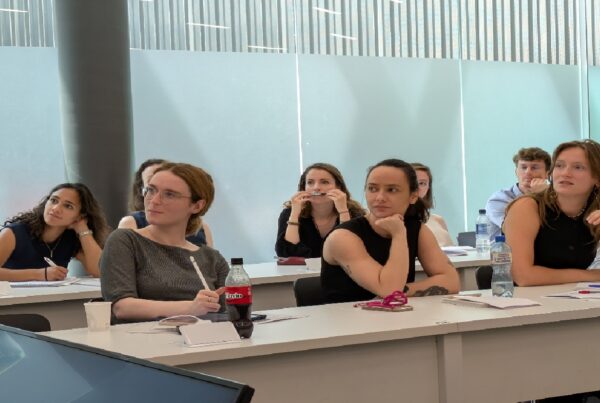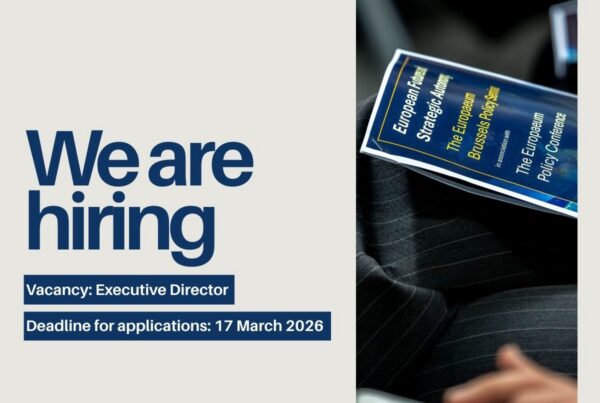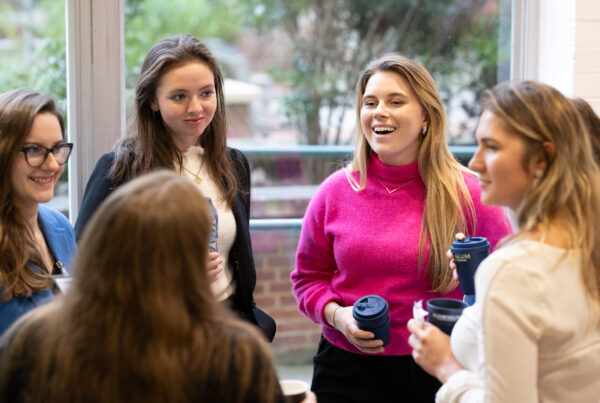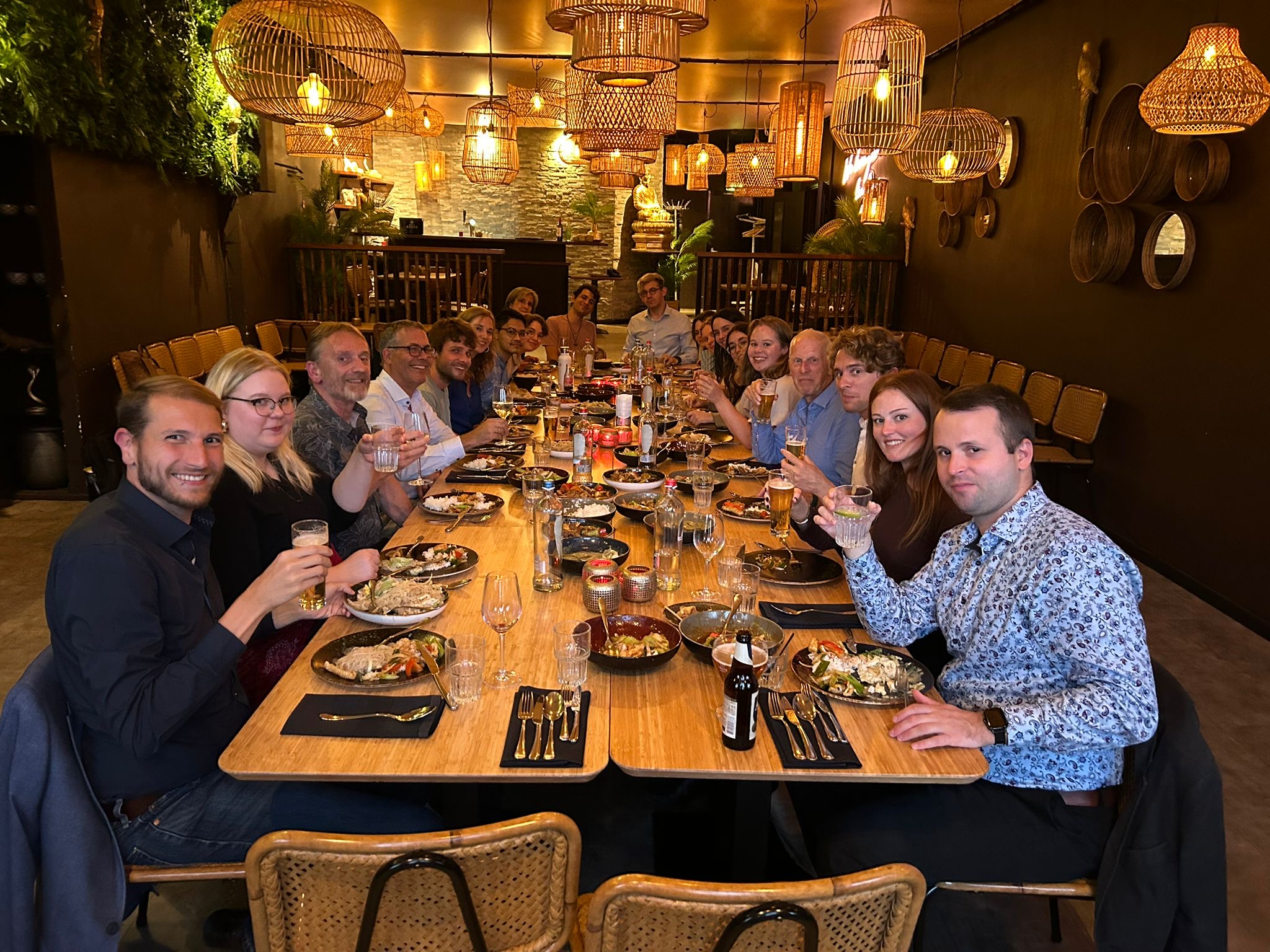
The 2025 Europaeum Classics Colloquium took place at the University of Leiden on 28 and 29 August. The theme was “multipolar Antiquity”, a phrase which sought to capture the complexity of entanglements within the Ancient World beyond the civilisational centres of Greece and Rome. Inspired by Josephine Crawley Quinn’s groundbreaking work How the World Made the West (2024), the Colloquium interrogated how students and scholars should understand and describe ancient political, social, cultural, and economic complexity.
The event was opened by Professor Chris Gosden (Oxford) who set the scene with a lecture ‘Notes on a Global Past’. Gosden described the complexity of interconnection and mobility around the prehistoric world offering a framework for incorporating it into understandings of political and cultural rise and fall. This approach was complimented by a second lecture later in the day from Professor Olaf Kaper (Leiden) who discussed his archaeological work at the Egyptian Red Sea port of Berenike. The port was a melting pot of goods and peoples, as exemplified by the statues of the Buddha his team has uncovered there from the Roman era.
The Colloquium’s second day saw two further lectures, by Professor Sylva Fischerová (Charles University) who discussed Greek literary borrowings from older Asiatic cultures and Assistant Professor Marike van Aerde (Leiden) who explained her digital humanities project to catalogue and analyse trade networks around the ancient Near East and Indian Ocean littoral.
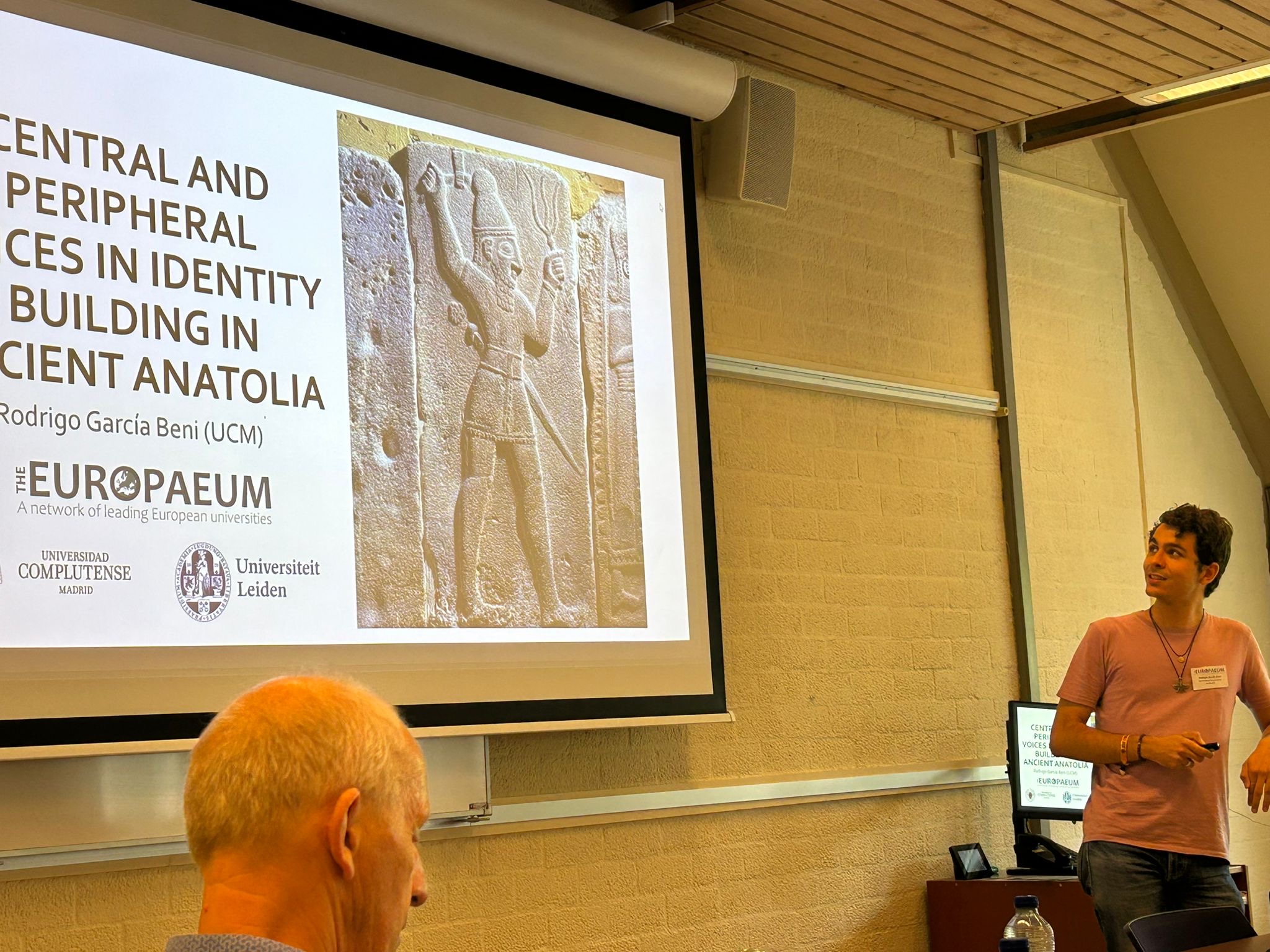 In addition to the keynote lectures, eight students also presented their own research in three panel sessions during the two days. The students also benefitted from a guided tour of the Dutch National Museum of Antiquities located just across the canal from the University.
In addition to the keynote lectures, eight students also presented their own research in three panel sessions during the two days. The students also benefitted from a guided tour of the Dutch National Museum of Antiquities located just across the canal from the University.
Student Simona Thompson (Oxford) writes:
“’Multipolar Antiquity’ was a very fitting topic for the Classics Colloquium 2025. Not only is this theme particularly relevant in the present global world, but it also suits well the diverse and collaborative spirit that is at the heart of the Europaeum. As literary texts are the object of my studies, I found it extremely enriching to listen to the papers of colleagues who are expert in archaeology and ancient history. Their approach complements my point of view on antiquity and prompted stimulating reflections on my own area of research. In particular, quantitative and qualitative aspects of cultural relationships in the ancient world were tested inviting a nuanced appraisal of its complexity. Vibrant rewarding discussions originated thanks to the collaboration among scholars and students from different countries and from a wide range of disciplines in line with the mission of Europaeum. What a privilege to take part to such event!”
Student Henric Jansen (Leiden) writes:
“The Europaeum Classics Colloquium on ‘Multipolar Antiquity’ in Leiden was an intellectually stimulating and enriching experience. The organizers brought together some of the most distinguished senior scholars in the field, who shared their ideas about the interconnectedness of both the prehistoric and the ancient world.
The contributions of our fellow junior scholars were similarly stimulating. The Europaeum gave us a platform to share ideas with fellow scholars from other academic backgrounds; both from different disciplines (classical archaeology, ancient history, and philology) and different countries. During the social events surrounding the busy conference days I was able to forge lasting bonds with the European academic Classics community. I thank the organizers for bringing these inspiring people together, and I hope that they will continue to do so.”
In total, 17 students attended the Colloquium from 9 member universities. The Europaeum is especially grateful to the local host organiser Professor Casper de Jonge for his exceptional support throughout the whole event. It could not have been a success without him.

